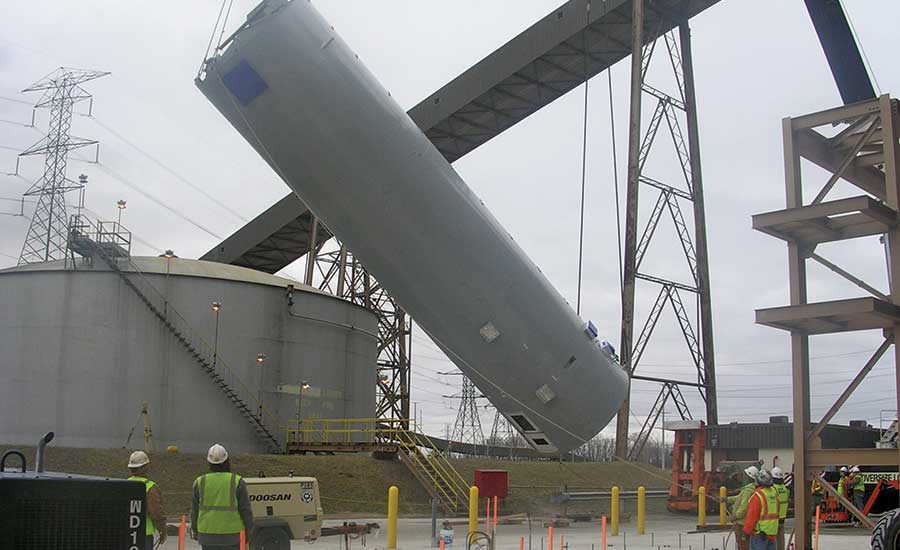Detroit-based DTE Energy agreed July 12 to exit coal-fired power production in Michigan by 2032, three years earlier than previously planned, with the utility set to add 15,000 MW of solar or wind power generation by 2040.
Michigan’s largest utility, with 2.3 million customers, announced revisions to its long-range power production plan following nearly two years of negotiations with state regulators, environmental groups and business leaders.
While the Sierra Club, a signatory to the agreement, and Attorney General Dana Nessel (D) applauded it, some environmental groups criticized the deal and said its focus on retiring only coal leaves too much room for other fossil fuels to replace it, noting that the 2032 goal still falls short of Gov. Gretchen Whitmer's (D) plan to retire all coal-fired power generation by 2030. The Michigan Public Service Commission, a statewide utility regulator, still needs to vote to approve the plan but is expected to do so as MPSC was one of its 23 signatories. The MPSC's next meeting is July 26.
DTE agreed to close its Monroe Power Plant, one of the largest coal-fired plants in the country, by 2032 and retire two of its units of it by 2028. Its previous 20-year plan had it closing it by 2040. It also promised to increase its investments in solar and wind power generation, increase its investments in grid storage and DTE agreed to seek approval of its next Integrated Resource Plan by December 2026, with a commitment to study an even earlier retirement of the final Monroe units at that time.
DTE also agreed to direct an additional $70 million in energy-efficiency funding towards programs for income-qualified customers, and retire a natural gas-fired peaking unit in River Rouge, Mich., as part of the agreement.
The new solar and wind assets are expected to produce enough power for approximately 4 million households and replace Monroe and other coal power plants that the company said will result in a cleaner environment for Michigan families, communities and businesses. The Monroe plant currently provides 30% of DTE's energy generation.
“We are proud our plan invests $9 billion into Michigan’s economy over the next 10 years, supporting more than 25,000 Michigan jobs and the great, local communities we partner with across the state," said Jerry Norcia, chairman and chief executive officer, DTE Energy in a statement. The plan also includes $8 billion for electric grid modernization investments, including 1,800 MW of new battery storage capacity. About 780 MW of new battery storage has to be completed by 2032 under the terms of the plan. The rest is planned to be completed by 2040. Norcia said the grid investments would make Michigan's grid more resilient to extreme weather.
"This legal settlement commits DTE to an expeditious transition away from burning coal that is compelled by economics, public health, and climate science. With the Monroe coal plant — the third largest climate polluter in the country — partially retiring in 2028 and fully retiring by 2032, people in southeast Michigan will soon begin to breathe easier,” said Shannon Fisk, Earthjustice attorney and director of state electric sector advocacy for the Sierra Club in a statement.
"This tentative settlement is a win for Michigan ratepayers,” Michigan Attorney General Dana Nessel said in a statement. “DTE has agreed to many changes that will help ensure accessibility for low-income residents, improved environmental standards, and further transparency on DTE’s lobbying efforts before legislators.”
However, Michigan lawmakers are currently debating a legislative package that would require utilities to generate power with no fossil fuels by 2035 and DTE’s plan wouldn’t meet that goal as it still relies heavily on natural gas. DTE's plan to abandon coal involves repurposing its Belle River. Mich., coal plant into a natural gas plant that can quickly fire up to meet spikes in electricity demand. Natural gas will remain a major portion of DTE’s energy mix for the next two decades under the plan. Michigan's Citizens Utility Board also said the plan doesn't go far enough to protect ratepayers.
Under the plan, DTE would be allowed to charge customers more in order to deliver a 9% return to DTE shareholders on nearly $2 billion in costs to retire the coal plants.
“We think it is inappropriate for DTE shareholders to profit from these retirements,” said Amy Bandyk, executive director for the ratepayer group, in a statement “and especially for DTE customers to have to pay for that shareholder profit."
Soulardarity and We Want Green Too, two nonprofit environmental groups that signed on to the deal, want Michigan's legislature to pass laws that support a faster energy transition and simultaneously protect ratepayers.
“Ultimately, we saw this deal as an advancement that creates greater possibility for a just energy future than the alternative,” the groups said in a statement. “But we are clear-eyed about its limitations, its drawbacks, and the need for further actions.”
Southfield, Mich.,-based contractor Barton Malow is in the final stages of an engineer-procure-construct program for DTE at the Monroe plant, Matt Lentini, its senior vice president of energy and industrial, told ENR in 2022 that, "We need to keep that afloat while we also deliver in the renewable space. We’re doing wind and solar throughout the state right now.”
Removing at least part of Monroe's generation capacity by 2028 will likely accelerate the timetable for wind and solar investments elsewhere to replace that capacity. Barton Malow said in a statement it was working on solar projects in Union Township and Pine River Township, Mich., for DTE Energy.





